
 Published on and written by Cyril Jarnias
Published on and written by Cyril Jarnias
Bahrain, a small archipelago in the Persian Gulf, has established itself as a prime destination for international entrepreneurs seeking to expand their operations in the Middle East. With its dynamic economy, favorable taxation, and business-friendly environment, the kingdom offers numerous opportunities to create and grow a business. In this article, we will explore in detail the various aspects of company formation in Bahrain, from benefits to procedures and promising sectors.
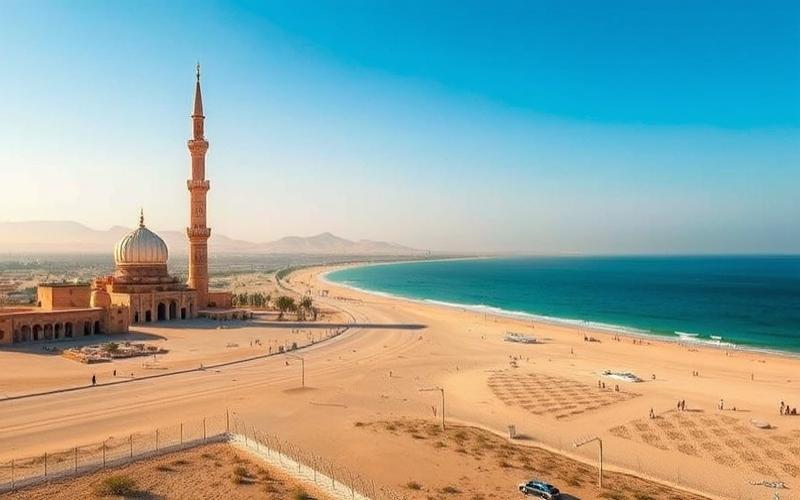

Bahrain, a small archipelago in the Persian Gulf, has become a prime destination for foreign entrepreneurs and investors in recent [...]


Bahrain, a small archipelago in the Persian Gulf, has established itself as one of the most attractive destinations for foreign [...]


Bahrain, a small island nation in the Persian Gulf, has experienced rapid economic development in recent decades. This growth has [...]


Bahrain, a small island nation in the Persian Gulf, has established itself as a major financial center in the Middle [...]
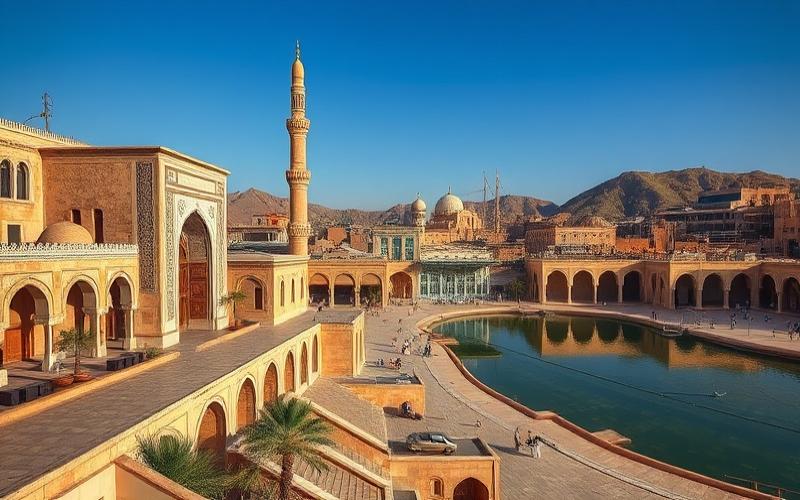

The Kingdom of Bahrain, a small island nation in the Persian Gulf, has established itself as a premier destination for [...]


Bahrain, the Pearl of the Persian Gulf, has established itself as a premier destination for entrepreneurs worldwide. With its dynamic [...]
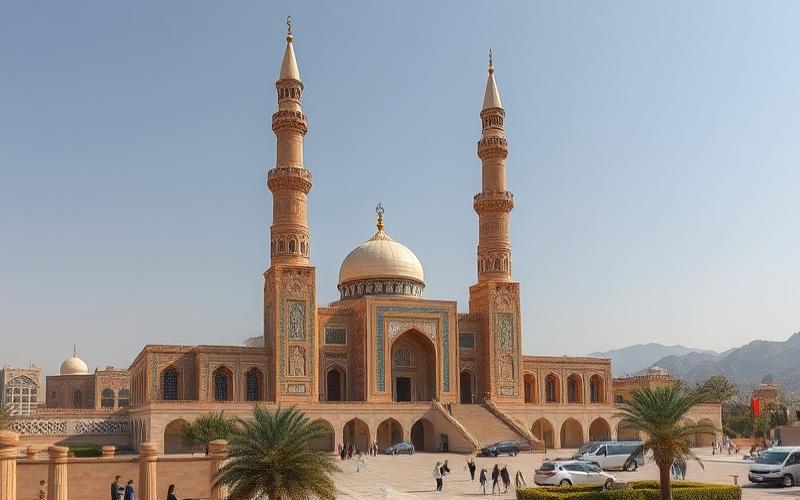

Bahrain, a small island nation in the Persian Gulf, has established itself as a prime destination for international entrepreneurs seeking [...]
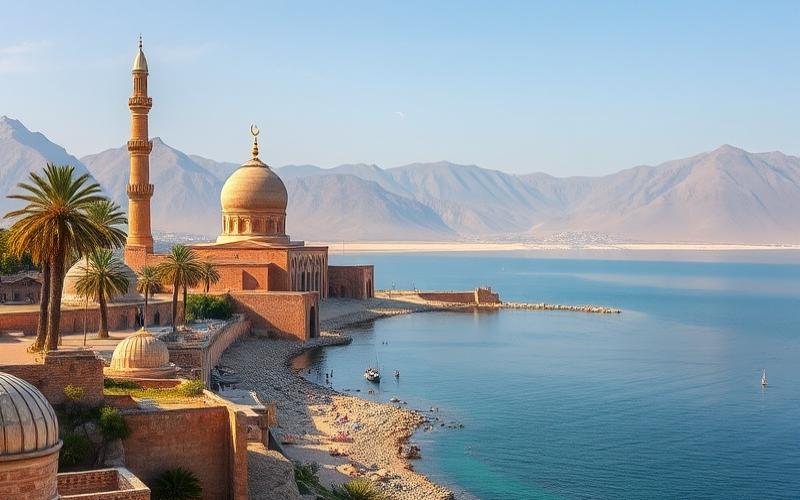

Bahrain, a small archipelago in the Persian Gulf, is a rapidly growing economic hub attracting increasing numbers of businesses and [...]


Bahrain, a small island nation in the Persian Gulf, offers a favorable environment for entrepreneurship due to its pro-foreign investment [...]
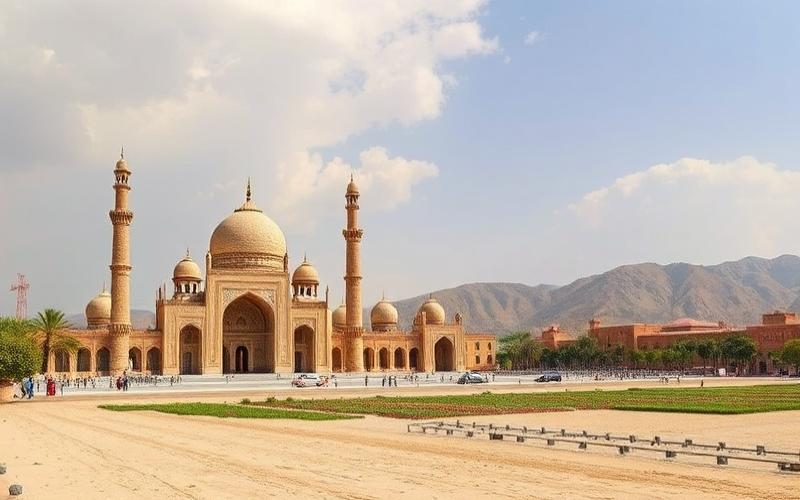

Bahrain, a small island nation in the Persian Gulf, has established itself as a major business and innovation hub in [...]
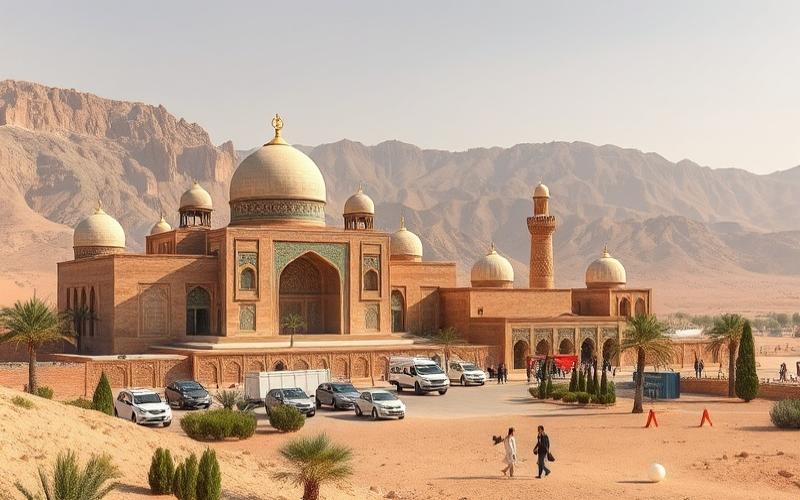

The Kingdom of Bahrain, a small island nation in the Persian Gulf, is positioning itself as an increasingly attractive destination [...]


Bahrain, a small archipelago in the Persian Gulf, has established itself as a premier destination for international entrepreneurs and investors [...]


The Kingdom of Bahrain, a small archipelago in the Persian Gulf, has established itself in recent years as a premier [...]


The Kingdom of Bahrain, situated at the heart of the Persian Gulf, is undergoing rapid digital transformation that is revolutionizing [...]


Bahrain, a small archipelago in the Persian Gulf, has established itself as an attractive destination for foreign investors in recent [...]
Bahrain: A Paradise for Entrepreneurs
Bahrain offers numerous advantages that make it a preferred destination for foreign investors. Its strategic location in the heart of the Persian Gulf provides easy access to rapidly growing regional markets. The country also benefits from a diversified and open economy, supported by a regulatory framework favorable to businesses.
One of Bahrain’s main advantages lies in its attractive taxation. The kingdom imposes no personal income tax and applies one of the lowest corporate tax rates in the region. This favorable tax policy allows businesses to maximize their profits and reinvest in their growth.
Furthermore, Bahrain offers foreign investors the possibility to own 100% of their company’s capital in most sectors, a rare characteristic in the Gulf region. This openness to foreign capital, combined with simplified administrative procedures, makes Bahrain fertile ground for international entrepreneurship.
Good to know:
Bahrain regularly ranks among the most business-friendly countries in the Middle East, thanks to its favorable taxation, flexible regulations, and openness to foreign investment.
Available Legal Structures
Bahrain offers several legal forms for businesses, adapted to different types of activities and investors. Here are the main available structures:
- Limited Liability Company (LLC): This is the most common form for small and medium-sized enterprises. It offers limited liability to partners and can be 100% owned by foreigners.
- Joint Stock Company: Ideal for large companies, it allows raising capital by issuing shares. This structure is subject to stricter governance and reporting requirements.
- Branch of a Foreign Company: This option allows a foreign company to establish a presence in Bahrain without creating a separate legal entity.
- Representative Office: This is a limited structure that cannot conduct direct commercial activities but can promote the products and services of the parent company.
The choice of legal structure will depend on several factors, including the nature of the activity, number of partners, invested capital, and the company’s long-term goals. It is recommended to consult a local expert to determine the most suitable form for your project.
Good to know:
The LLC is often preferred by foreign investors due to its flexibility and the possibility of 100% foreign ownership in many sectors.
A Tax System That Makes Entrepreneurs Dream
One of Bahrain’s main advantages for investors is its extremely favorable tax regime. The kingdom stands out with a tax policy aimed at attracting foreign capital and stimulating economic activity.
Corporate Tax: Bahrain does not apply corporate tax for most activities, except for the oil and gas sector which is subject to a 46% rate. This tax exemption applies to both local businesses and foreign companies, representing a significant advantage compared to many other jurisdictions.
Personal Income Tax: There is no personal income tax in Bahrain. Employees, whether local or expatriate, are not required to pay taxes on their salaries or other income.
VAT: Bahrain introduced a 10% VAT in 2019, in accordance with the Gulf Cooperation Council agreement. However, many essential products and services are exempt.
Customs Duties: Customs duties are generally low, with a standard rate of 5% on most imports. Many products benefit from total exemption, including raw materials for industry.
Double Taxation Agreements: Bahrain has signed tax treaties with many countries to avoid double taxation, which can be particularly advantageous for international businesses.
This attractive tax policy makes Bahrain a prime destination for entrepreneurs seeking to optimize their tax structure while benefiting from a stable and modern business environment.
Good to know:
The absence of corporate and personal income tax in Bahrain allows businesses to achieve substantial savings and reinvest more in their growth.
Launching Your Business: A Simplified Process
Creating a business in Bahrain is a relatively simple and quick process, thanks to government efforts to simplify administrative procedures. Here are the main steps to follow:
1. Choose a name for your business: The name must be unique and comply with local regulations. You can check name availability with the commercial registry.
2. Prepare necessary documents: This typically includes the company’s articles of association, founders’ identification documents, and the premises lease agreement.
3. Obtain necessary approvals: Depending on the type of activity, specific authorizations may be required from relevant ministries or authorities.
4. Register with the commercial registry: This step can be completed online through the Ministry of Industry and Commerce portal.
5. Obtain a commercial license: Once registration is validated, you can apply for your commercial license.
6. Register with social security: If you employ staff, you must register with the General Organization for Social Insurance (GOSI).
7. Open a corporate bank account: Choose a local or international bank and provide required documents to open your account.
The Bahraini government has established a one-stop shop for investors, the “Bahrain Investors Center,” which centralizes most procedures and can significantly speed up the process.
Good to know:
Thanks to administrative simplification efforts, it’s possible to create a business in Bahrain in less than a week, making it one of the fastest jurisdictions in the region to launch an activity.
Bahrain Compared to Other Offshore Havens
Bahrain positions itself as an attractive alternative to traditional offshore jurisdictions, offering a balance between tax advantages and international reputation. Here’s how it compares to other popular destinations:
Dubai (United Arab Emirates): Like Bahrain, Dubai offers very favorable taxation. However, Bahrain stands out with generally lower operational costs and more flexible regulations regarding foreign ownership.
Singapore: Although Singapore is renowned for its world-class business environment, Bahrain offers even more favorable taxation and a strategic geographical position to access Middle Eastern markets.
Cayman Islands: While the Cayman Islands are known for banking secrecy, Bahrain offers a better balance between tax advantages and compliance with international financial transparency standards.
Mauritius: Mauritius is a popular offshore center, but Bahrain distinguishes itself through its proximity to Gulf markets and more developed infrastructure.
Bahrain stands out through its unique combination of tax advantages, political stability, modern infrastructure, and strategic geographical location. Moreover, unlike some offshore jurisdictions, Bahrain is not considered a tax haven by most international organizations, which can be an asset in terms of reputation for businesses.
Good to know:
Bahrain offers an excellent compromise between the advantages of traditional offshore centers and the credibility of a jurisdiction respecting international financial transparency standards.
Protecting Your Employees: Social Obligations
Although Bahrain is known for its favorable taxation, the country nevertheless has a social protection system for employees. Employers must respect certain social obligations:
Social Security: Employers must contribute to the General Organization for Social Insurance (GOSI) for their Bahraini employees. The contribution is 12% of salary for the employer and 7% for the employee.
Unemployment Insurance: A 1% salary contribution is required, shared equally between employer and Bahraini employee.
End-of-Service Benefits: Expatriate employees are entitled to an end-of-service benefit, generally calculated based on 30 days’ salary per year of service.
Paid Leave: Employees are entitled to a minimum of 30 days paid leave per year after one year of service.
Health Insurance: Since 2019, employers are required to provide health insurance to all their employees, including expatriates.
These obligations, while representing a cost for employers, remain relatively moderate compared to many other countries. They contribute to creating a stable and attractive work environment, essential for attracting and retaining talent.
Good to know:
Bahrain’s social protection system, although less extensive than in some Western countries, nevertheless offers significant coverage to employees, contributing to the country’s social stability.
Opening a Bank Account: A Crucial Step
Opening a corporate bank account is an essential step in the company formation process in Bahrain. Here are the main steps to follow:
1. Choose a bank: Bahrain has a developed banking sector, with local and international banks. Compare offers in terms of services, fees, and facilities for international trade.
2. Prepare documents: You will generally need the following documents: – Commercial license – Company articles of association – Commercial registry – Identification documents of authorized signatories – Proof of company address – Business plan (sometimes required)
3. Meet with a relationship manager: Most banks require an in-person meeting to open a corporate account.
4. Make an initial deposit: The minimum amount varies by bank, but generally plan between 5,000 and 20,000 Bahraini dinars (approximately $13,000 to $53,000).
5. Wait for validation: The verification process can take from a few days to several weeks, depending on the complexity of your corporate structure.
It’s important to note that banks in Bahrain, like in many countries, have strengthened their verification procedures to combat money laundering. Be prepared to provide detailed information about fund origins and your company’s ownership structure.
Good to know:
Some Bahraini banks offer advanced online banking services and facilities for international transactions, which can be particularly advantageous for companies operating globally.
Future Sectors: Where to Invest in Bahrain?
Bahrain, in its desire to diversify its economy beyond oil, has identified several key sectors offering promising opportunities for investors:
Financial Services: Bahrain is an established regional financial center, with particular focus on Islamic finance. Opportunities abound in fintech, asset management, and investment banking services.
Information and Communication Technology (ICT): The government is heavily investing in digital infrastructure, creating opportunities in cloud computing, artificial intelligence, and cybersecurity.
Manufacturing Industry: With its competitive operational costs and access to regional markets, Bahrain attracts investments in light and high-tech manufacturing.
Logistics and Transport: Bahrain’s strategic position makes it a natural logistics hub, offering opportunities in transport services, warehousing, and distribution.
Tourism and Hospitality: The tourism sector is rapidly expanding, with opportunities in hotels, restaurants, and entertainment.
Renewable Energy: Bahrain is committed to energy transition, creating opportunities in solar, wind, and energy efficiency.
Education and Training: With a young and growing population, the education sector offers interesting prospects, particularly in higher education and vocational training.
These sectors often benefit from specific government incentives, such as subsidies, tax exemptions, or innovation support, making investment even more attractive.
Good to know:
Bahrain has established special economic zones, like the Bahrain International Investment Park, offering additional advantages to companies operating in certain priority sectors.
Building Your Team: Recruitment in Bahrain
Recruiting qualified staff is a crucial element for your company’s success in Bahrain. Here are some key points to consider:
Local vs. Expatriate Workforce: Bahrain encourages the employment of its citizens through a “Bahrainization” system. However, it remains relatively flexible compared to other Gulf countries, allowing companies to recruit qualified expatriates when necessary.
Recruitment Process: 1. Clearly define the position and required qualifications. 2. Publish the job offer on local and international platforms. 3. Conduct candidate pre-selection. 4. Organize interviews, in person or remotely. 5. Check references and qualifications. 6. Make a job offer.
Work Permits for Expatriates: If you recruit an expatriate, you will need to obtain a work permit from the Labor Market Regulatory Authority (LMRA). This process typically involves: – Applying for a work visa – Obtaining a health certificate for the employee – Registering with the LMRA
Recruitment Agencies: Many specialized recruitment agencies operate in Bahrain and can help you find appropriate talent, both local and international.
Training and Development: Bahrain emphasizes skills development. Investing in your staff’s training can not only improve productivity but also help you meet Bahrainization quotas.
Corporate Culture: Be aware of cultural differences and adapt your management style accordingly. Respect for local traditions and religious practices is important for maintaining a harmonious work environment.
Good to know:
Bahrain has a young and well-educated workforce, with good English proficiency, facilitating the recruitment of local talent for many international companies.
Bahrain offers an environment conducive to business creation and development, combining tax advantages, simplified procedures, and growth opportunities. Whether you’re an entrepreneur seeking international expansion or a multinational company looking to establish a presence in the Middle East, the kingdom presents undeniable assets. However, as with any foreign investment, it’s crucial to prepare well and surround yourself with local expert advice to effectively navigate the Bahraini business environment.
Disclaimer: The information provided on this website is for informational purposes only and does not constitute financial, legal, or professional advice. We encourage you to consult qualified experts before making any investment, real estate, or expatriation decisions. Although we strive to maintain up-to-date and accurate information, we do not guarantee the completeness, accuracy, or timeliness of the proposed content. As investment and expatriation involve risks, we disclaim any liability for potential losses or damages arising from the use of this site. Your use of this site confirms your acceptance of these terms and your understanding of the associated risks.



